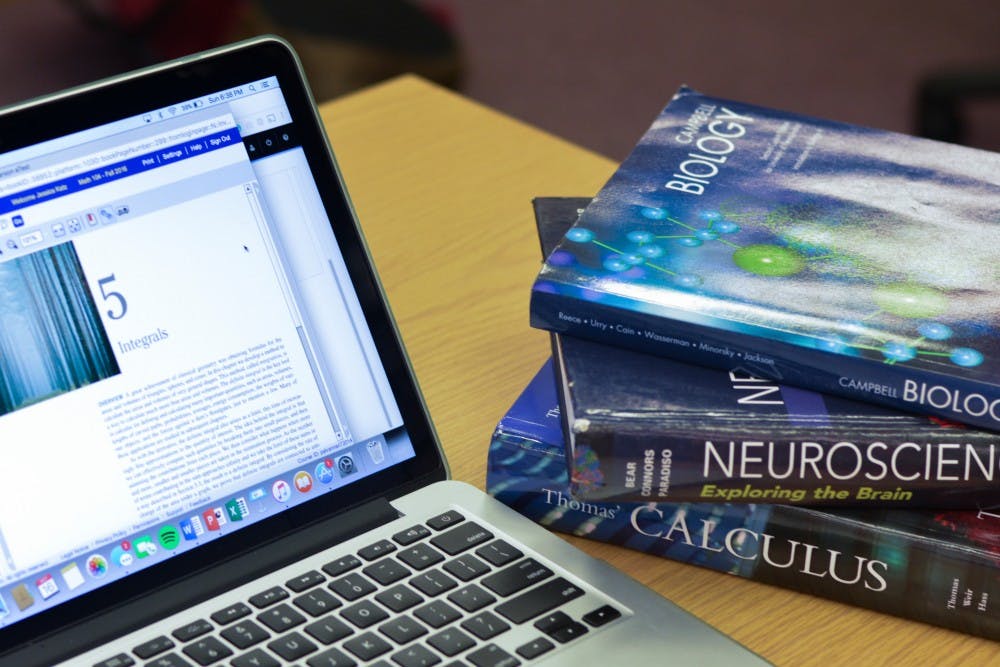
Penn is looking to expand its online learning to an unexpected demographic: high school students.
The Penn Admissions office and Steppingstone Scholars, a Philadelphia-based academic enrichment program that helps underrepresented students, partnered to create a new online course: “How to Apply to College.”
The course, which will be offered for free on Penn’s online platform Coursera, will be released in February 2017. Students who complete the 10 weeks of modules will learn how to research, apply to and make the transition to colleges.
The online class was created to serve students from low-income areas who had a lack of guidance in the college admissions process. It will cover material on paying for college and filling out financial aid forms, scholarships, filling out the Common Application and making the transition to college.
The course is not Penn-specific, with options for both two- and four-year universities and advice on overcoming a range of general obstacles.
Four first-generation Penn students and six Steppingstone Scholars students were featured in the videos along with Dean of Admissions Eric Furda and Steppingstone Scholars President Sean Vereen to dispense advice and provide information for prospective college students.
“What’s really interesting about this, whether it’s innovation or an iteration, is we’re taking a platform that’s largely targeted towards upper-income people, but we’re aggregating knowledge that isn’t usually disseminated through this type of platform," Furda said.
The course will be promoted through college conferences, social media, college counselors and by distributing the program to the School District of Philadelphia.
“The Coursera platform itself has a big reach,” he said. Indeed, less than a year after Penn began digitizing some of its classes on Coursera, it had over 1 million enrollments.
Vereen said that although there is information about college diffused across the internet, the course is a focal point for students.
“There are some places that talk about how to apply to college, but I don’t think there’s any one that focuses on first-generation students and allows all these resources to come together in one space,” Vereen said.
College sophomore Anea Moore moderated and participated the student panel segment for the course. The students discussed how to apply to and succeed in college with a first-generation background.
“I think it’s going to extremely helpful,” said Moore, who is the chairperson of Community Outreach of Penn First, a support network for first-generation and low-income students. “Just from being on the Penn First board for almost a year and a half now and I’ve heard about a bunch of experiences of how difficult the college application process was for many of us. A lot of us don’t get help for applying to college from our parents and some of us went to lower-income schools, which don’t have the most staff, counselors in particular, that could help us apply.”
Moore said that the course could serve as guidance that is often missing from the lives of first-generation college students.
College junior David Thai was another a student that participated on the student panel. He said that topics addressed by the panel were culture shock, personal accountability, the difference between life at Penn and life at home and what led the panelists to choose Penn.
Thai said that the course can reassure for high school students that it is possible to come to Penn from any background.
“Coming from a school in Philadelphia, I thought it was so difficult because I didn’t have a high school counselor so a lot of things I did on my own, and hearing that people have done that too and they survived, I think it’s reassuring to know that it’s possible. But I think still at the end of the day I’m by myself in this. If I was a high school, I would want to be able to connect with college students and talk to them.”
The Daily Pennsylvanian is an independent, student-run newspaper. Please consider making a donation to support the coverage that shapes the University. Your generosity ensures a future of strong journalism at Penn.
Donate



